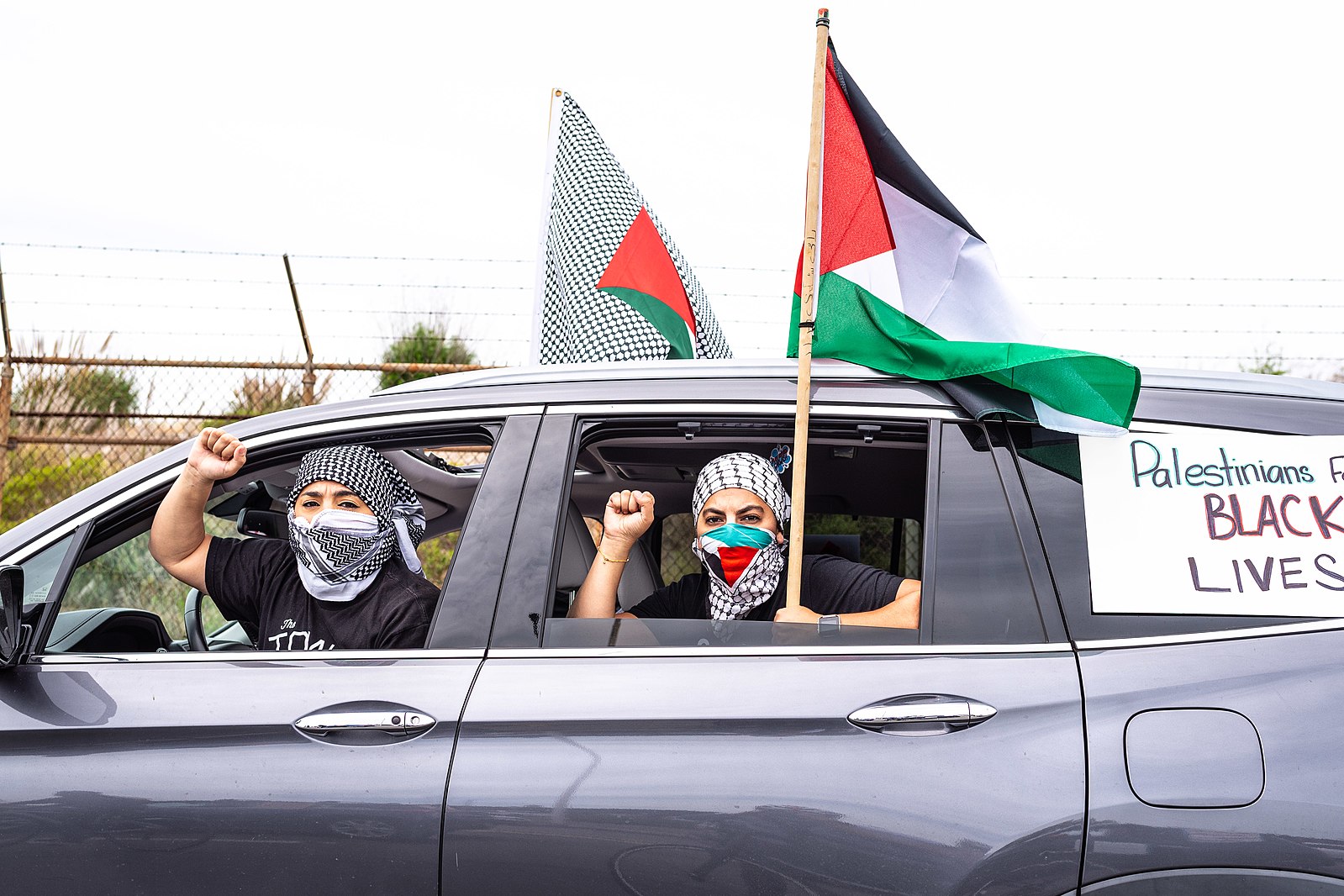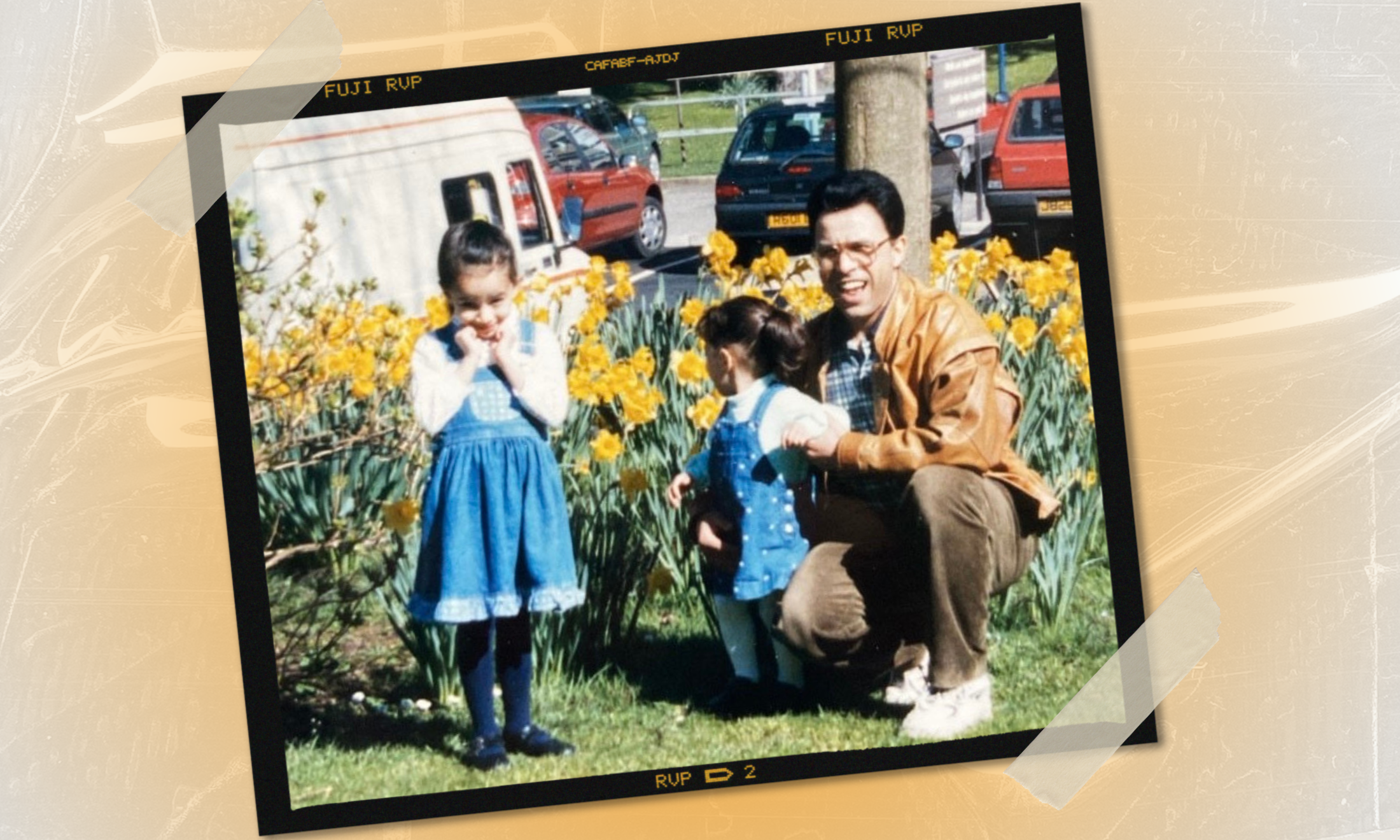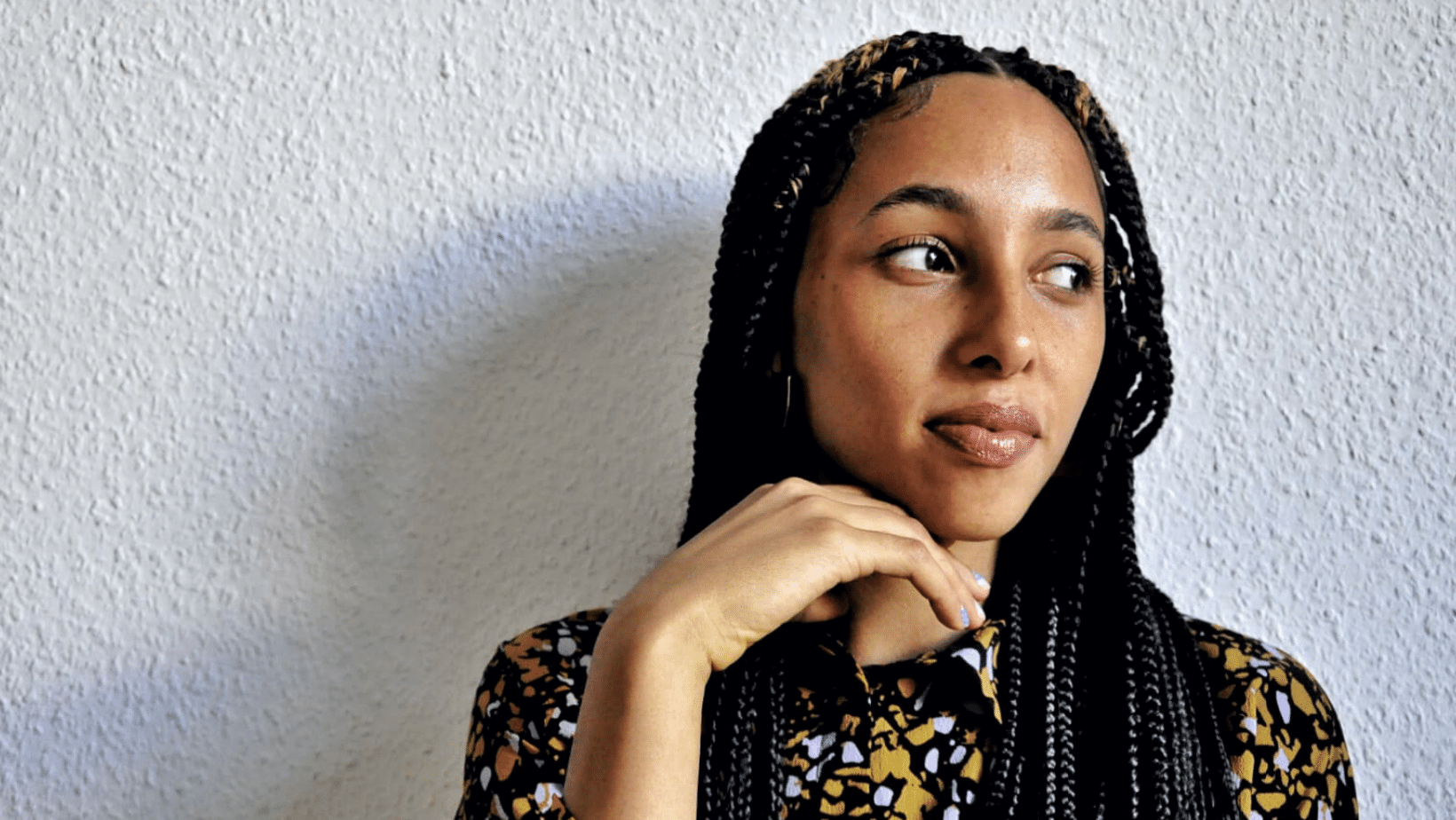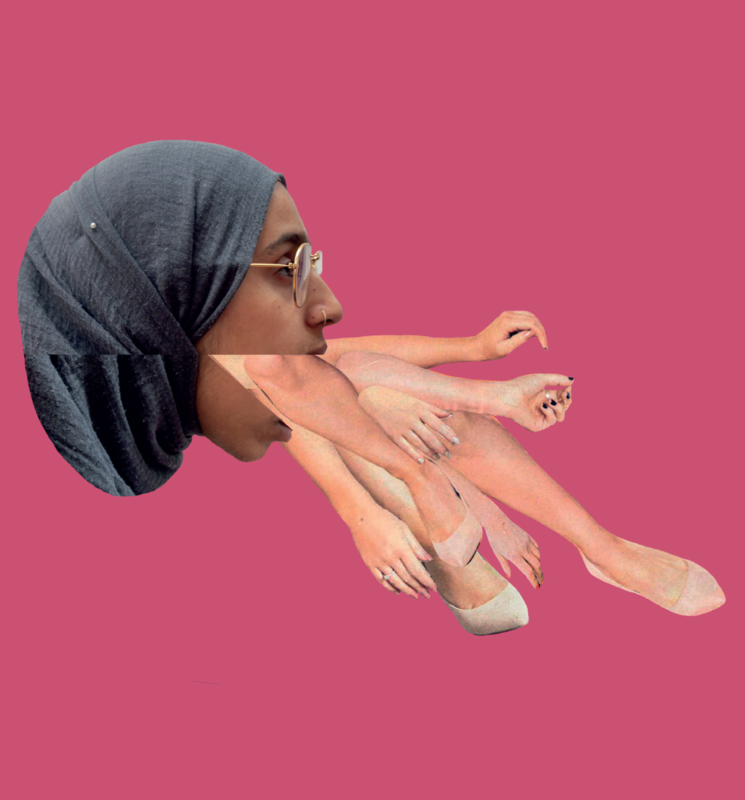
The work of activist and poet Suhaiymah Manzoor-Khan is not intended to disprove stereotypes about Muslim women. Her spoken word performances take big ideas about the state, race, gender and the diaspora and breaks them down into lyrical uncompromising prose. Postcolonial Banter is her debut poetry collection and serves as a toolkit to equip readers with the material to ask who these stereotypes function for and where they come from. ‘This Is Not A Humanising Poem’, originally performed at the Roundhouse Poetry Slam Final in 2017, went viral expressed Suhaiymah’s frustration when othered by Islamophobia.
I meet Suhaiymah for the first time in Regents Park on a cold autumn afternoon. The day before, I’d huddled up in bed on a sleepy Sunday to read Postcolonial Banter. The book takes the reader through poems from Suhaiymah’s early career to recent commissions to original work. Exhausting as living under oppression can be, the collection makes you feel simultaneously held, instantly grounded and challenged at the same time.
As we stroll past neatly cut hedges and rose bushes, Suhaiymah’s declares that people who are deprived of their histories are also deprived of envisioning futures for themselves. “We know that a tool of colonialism is to erase your history and make it difficult for you to have even a present,” she explains. Upon the release of her poetry collection, she was surprised that her personal poems about her family resonated with readers. “For so long I thought, and I think this is cultivated by social media, that I had to [write] big poems and big political statements, but actually you are allowed to be a full human being.”
Suhaiymah first got into spoken word poetry at the behest of a guidance counsellor when she was suffering from depression in college. She had always been writing diary entries and watched spoken word performances on YouTube, but never thought she could be the one on stage. In an age where virality and follower counts can make commercial success, social media means poets like Suhaiymah are always under the spotlight. She’s still grappling with how to handle the inherent performativity of occupying that space. “If you’re just writing to just be received well, then that takes out some of the stuff I think is really important about writing – disrupting people’s sense of stability.”
“Writing and performing poetry is inherently bound up in having an audience, but then for me, the question is: when am I not performing?”
Suhaiymah Manzoor Khan
Conversations about performativity online seem inseparable from what Suhaiymah articulates as the problem inherent to existing as a person more generally: “I wouldn’t be a Muslim woman without an audience. Writing and performing poetry is inherently bound up in having an audience, but then for me, the question is: when am I not performing?”
Growing up in Leeds, but regularly visiting her Pakistani grandparents in Bradford, Suhaiymah describes her childhood self as bookish and talkative. “My favourite film was Matilda and I’d bring big boxes to the library to fill with books,” she says. “I think I was trying to emulate her.” Born to a third generation Pakistani family, Suhaiymah had a diverse formative education. “If you could put early 2000s multiculturalism into a school, I feel like that’s what my high school was,” she adds.
From a young age, storytelling was a cathartic release. She’d look forward to talking to her parents through her day in great detail. “It was linked to feeling good,” she says. “I’d be upset if I didn’t get to talk through my entire day which is really extra.” Her stage career started after a counsellor encouraged her to do something Suhaiymah thought she never could: perform at an open mic night. Her first big gig took place at the Downs Festival in 2017.
In Postcolonial Banter, Suhaiymah also grapples with how the nation-state imagines Muslims and how they are targeted by Prevent.
Suhaiymah remains hopeful while never underestimating injustice: “I’m very certain that things are gonna get a lot worse before they get better.” When Shamima Begum’s citizenship was revoked, she remembers having a conversation with her mum who was sure that in her lifetime, her children were going to be repatriated. Initially shocked, Suhaiymah doesn’t think her mother is unreasonable: “We’ve literally had the Windrush scandal, so I hope that we can be resilient enough to resist when that happens.” She doesn’t underestimate the state’s ability to inflict violence upon people of colour: “I hope that we are able to be more united in our like critique so that when things do get worse, we’re in a strong enough position that we can actually push back.”
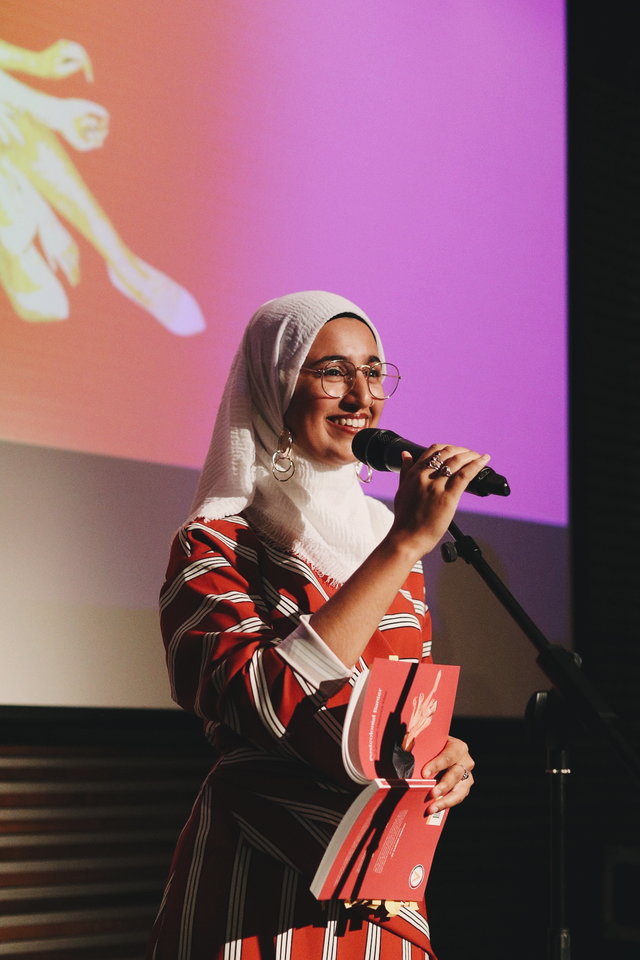
Over time Suhaiymah began to use writing to disrupt. During her history degree at Cambridge, she started a blog that voiced what it was like studying at a very white university institution. While studying Suhaiymah also co-wrote A Fly Girls Guide to University with fellow activists Lola Olufemi, Odelia Younge and Waithera Sebatindira. The book grew out of the writers initiative to organise a separatist space for people of colour at the institution to support and uplift each other.
Earlier this year, Suhaiymah withdrew from the Bradford Literature Festival after seeing that it was sponsored in part by the ‘Build a Stronger Britain Together’ fund, a support service to the Home Office’s Counter-Extremism Strategy. The covert infiltration of literary spaces is an insidious tactic that relies on the idea that Muslims are at risk of radicalisation because of their identity. She didn’t want to legitimise the government’s assumption that Muslims are predisposed to violence. Vocal about the discriminatory practices of Prevent, Suhaiymah has been critical of the government’s counter-terrorism strategy and it’s targeting of brown Muslim people in the name of “national security”.
Echoing this sentiment, Postcolonial Banter reads like an act of defiance, a firm assertion of Suhaiymas politics. The poem ‘British-born’ maps out how the term is used in British media to describe perpetrators of violence who are Muslim and how it distances said perpetrators from the fact that they are products of British society. Similarly, ‘We Did Not Bring This Darkness Upon Ourselves’ takes the reader through the terrifying normalities of living under surveillance as a Muslim family. The poem asks: “Do You Not Remember They Want Us To Build Prisons Out Of Our Communities? To Build Prison Guards Out of Ourselves?”
Postcolonial Banter isn’t an answer to what life would be like free from oppression, it’s what Suhaiymah describes as “a record of thought processes”. By sharing it she hopes to give people the tools to ask better questions.
“I hope that we are able to be more united in our like critique so that when things do get worse, we’re in a strong enough position that we can actually push back.”
She’s keen to highlight that by being asked to disprove stereotypes, we engage in the very narratives intended to strip us of our humanity. It’s not worth trying to prove that Muslim women aren’t all oppressed, or that all Muslims aren’t terrorists. “Rather than wasting a lifetime answering those questions, what would it be like to imagine futures for ourselves?” she asks.
While circling fountains in Regents Park, we challenge each other to outline what true freedom looks like. Suhaiymah tells me she once attended a seminar where the participants were asked to free write in response to the prompt: “If you woke up tomorrow and the world was transformed in all the ways that you wanted it to, what would your day look like?” A recurring theme in participants answers was safety. “For so many of us, liberation is bound up with that,” she says. For herself, she’d like to define herself on her own terms but concedes that dream “is meaningless without the terms themselves”. This illustrates that as marginalised people, we’re so intimately acquainted with violence or oppression that it’s hard to put words to anything else.
Postcolonial Banter, and indeed Suhaiymah’s work more broadly reflect an intrinsic optimism. “Death plays a really pivotal part in my politics,” she says. “As someone who doesn’t believe that this [life] is the be all end all and that you are accountable for your life, my actions have to be so intentional and deliberate.” She tells me that she finds great relief in the idea of the afterlife, but that her activism is fueled by the idea that while we remain on this earth, our actions matter for better or worse: “Even if we removed all harm that is from the state or from material conditions, at the end of the day, we’re very capable of hurting each other’s hearts. We have to be able to believe both: yes, you know, there is something after death which is better than this, but also that while we are here, we have to make the best of this.”
It’s her continued optimism and insistence that justice is worth the toil that makes Suhaiymah such an enigmatic activist. Even if imperfect, even if incomplete, we can give ourselves permission to daydream and trust our intuition to recognise liberation when we see it: what nourishes our bodies, builds our communities and reflects our identities without compromise. It’s from there that new worlds can come to fruition.


